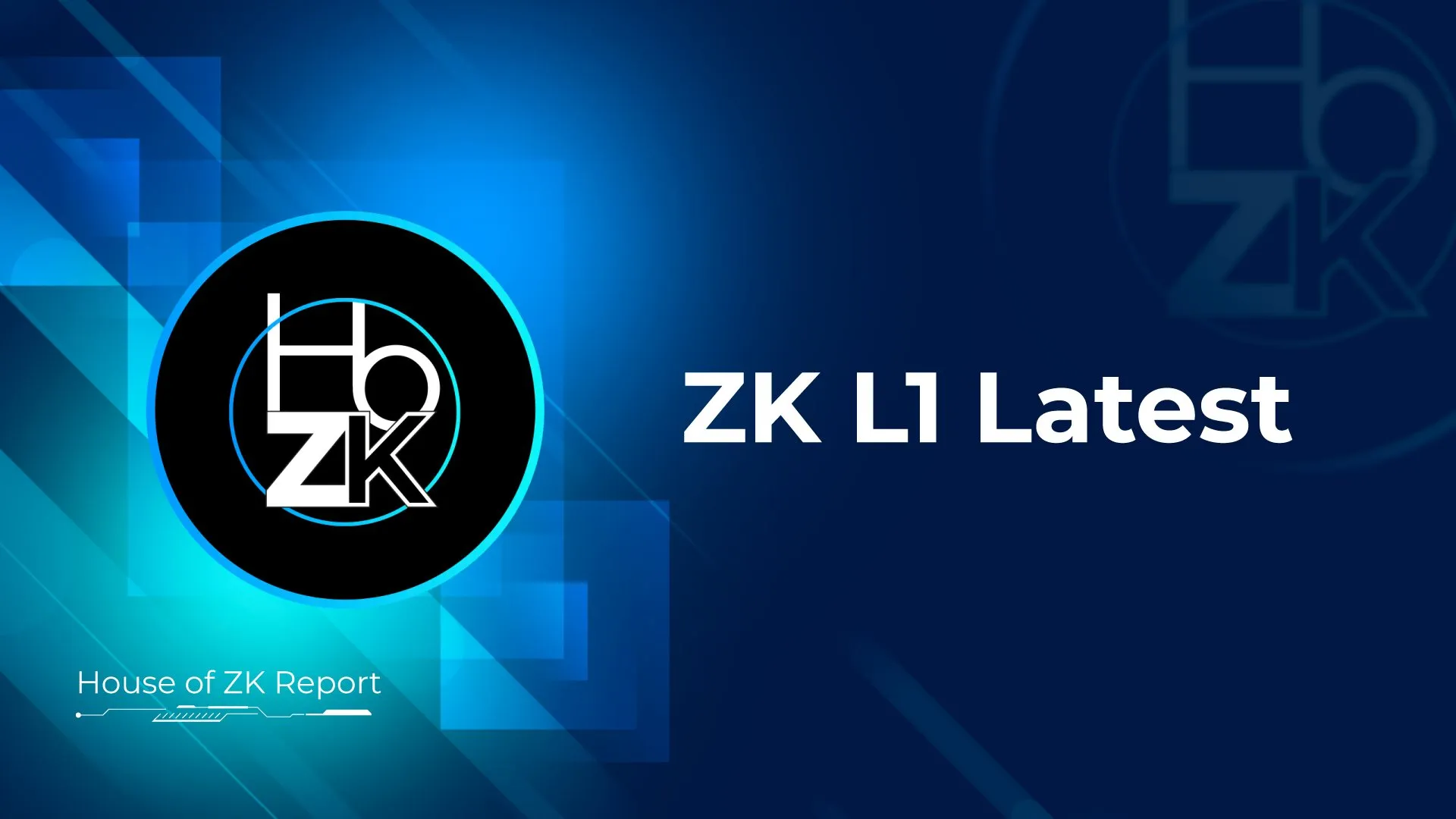
Here we track the progress of the leading ZK-Layer 1 builders, documenting recent significant releases, technical breakthroughs and general updates.
Featuring: @AleoHQ/@ProvableHQ, @MinaProtocol/@o1_labs, @horizenglobal, @Zcash/@ZcashFoundation/@zashi_app, @hyli_org, @DuskFoundation, @nockchain, & @N1Chain
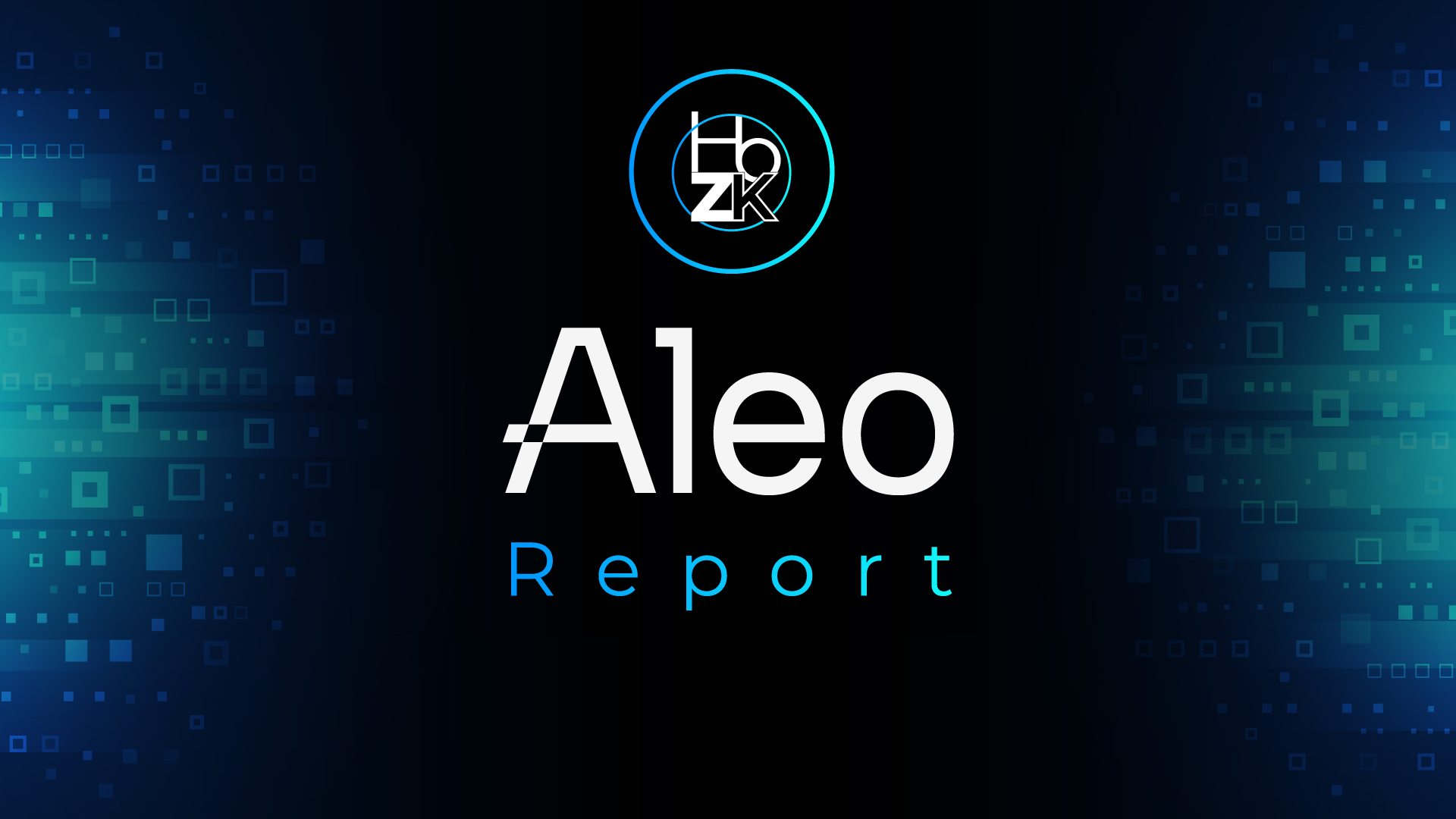
Partnerships
@AleoHQ has joined @global_dollar, a stablecoin consortium led by @Paxos that includes @RobinhoodApp, @Worldpay_Global, @StanChart, and others: https://aleo.org/post/aleo-joins-global-dollar-network-private-stablecoin/
As the first privacy-preserving L1 blockchain in GDN, Aleo aims to support USDG adoption by enabling secure, programmable payments.
Tech
@ProvableHQ has released snarkOS v4.1.0, introducing program upgradability, enabling developers to update dApps without fragmenting application state: https://provable.com/blog/announcing-snarkOS-v4.1.0
The update includes a consensus version change, raises the validator cap to 40, and improves node operator tools like RocksDB checkpoints and version endpoints.
Developer tooling for snarkVM, Leo, and the SDK was also enhanced, including better offline transaction support and updated async handling in Leo 3.1.0.

@MinaProtocol has announced its upcoming hard fork, named the 'Mesa Upgrade': https://x.com/MinaProtocol/status/1958425085922123890
The update aims to enhance network performance, simplify future upgrades, and expand community capabilities. Specific technical changes are being developed through the Mina Improvement Proposal (MIP) process, with further details expected soon.
General Updates
@o1_labs shared a list of their latest development updates: https://x.com/o1_labs/status/1960167099978195087
In summary:
Roadmap
The project also updated its 2025 roadmap after assuming full responsibility for Mina: https://o1labs.org/blog/roadmap-update
Key areas of focus include enhancements to o1js (zkFunctions, public APIs, improved docs), network upgrades ahead of the upcoming hard fork (slot time reduction, transaction limits, automated upgrades), and renewed work on the Rust node.
What was previously known as 'Project Unititled' was revealed as @ensue_ai - focused on shared memory for agent-based systems.
Proposal
o1Labs has proposed MIP-6 to reduce Mina Protocol slot time by 50% to 90 seconds: https://x.com/o1_labs/status/1960745952140255589
The change aims to increase chain throughput and improve transaction processing, enhancing overall efficiency and usability. The proposal is in Last Call, with feedback due by Sep 2, 2025, before potential movement to Finalization.
Full details are on GitHub: https://github.com/MinaProtocol/MIPs/blob/main/MIPS/mip-0006-slot-reduction-90s.md

Testnet
@horizenglobal has launched its privacy-focused appchain testnet on @base, debuting @darkswapzk as its first application: https://mirror.xyz/horizenofficial.eth/pyybEOviNU1EiJttT3Yrc68b4u7gOCixoMNacoTOZjM
Built with @singularityzk, DarkSwap enables confidential, bot-proof DeFi trading by concealing trade data and preventing MEV exploits. Following the ZEN token's ERC-20 migration, this testnet marks a shift to a modular, @ethereum-aligned architecture.
Publications
@robviglione, Co-founder of Horizen, explained in a recent article that too much transparency in DeFi harms market efficiency by exposing wallets, strategies, and trade intentions: https://crypto.news/private-defi-is-also-about-market-efficiency-opinion/
This leads to frontrunning, MEV extraction, and strategic leakage. Rob argues that privacy, enabled by ZKPs, protects competitive behavior without compromising verifiability. For institutions to adopt DeFi, privacy-first infrastructure must balance compliance, confidentiality, and fair execution.
Proposal
o1Labs has proposed MIP-6 to reduce Mina Protocol slot time by 50% to 90 seconds: https://x.com/o1_labs/status/1960745952140255589
The change aims to increase chain throughput and improve transaction processing, enhancing overall efficiency and usability. The proposal is in Last Call, with feedback due by Sep 2, 2025, before potential movement to Finalization.
Full details are on GitHub: https://github.com/MinaProtocol/MIPs/blob/main/MIPS/mip-0006-slot-reduction-90s.md
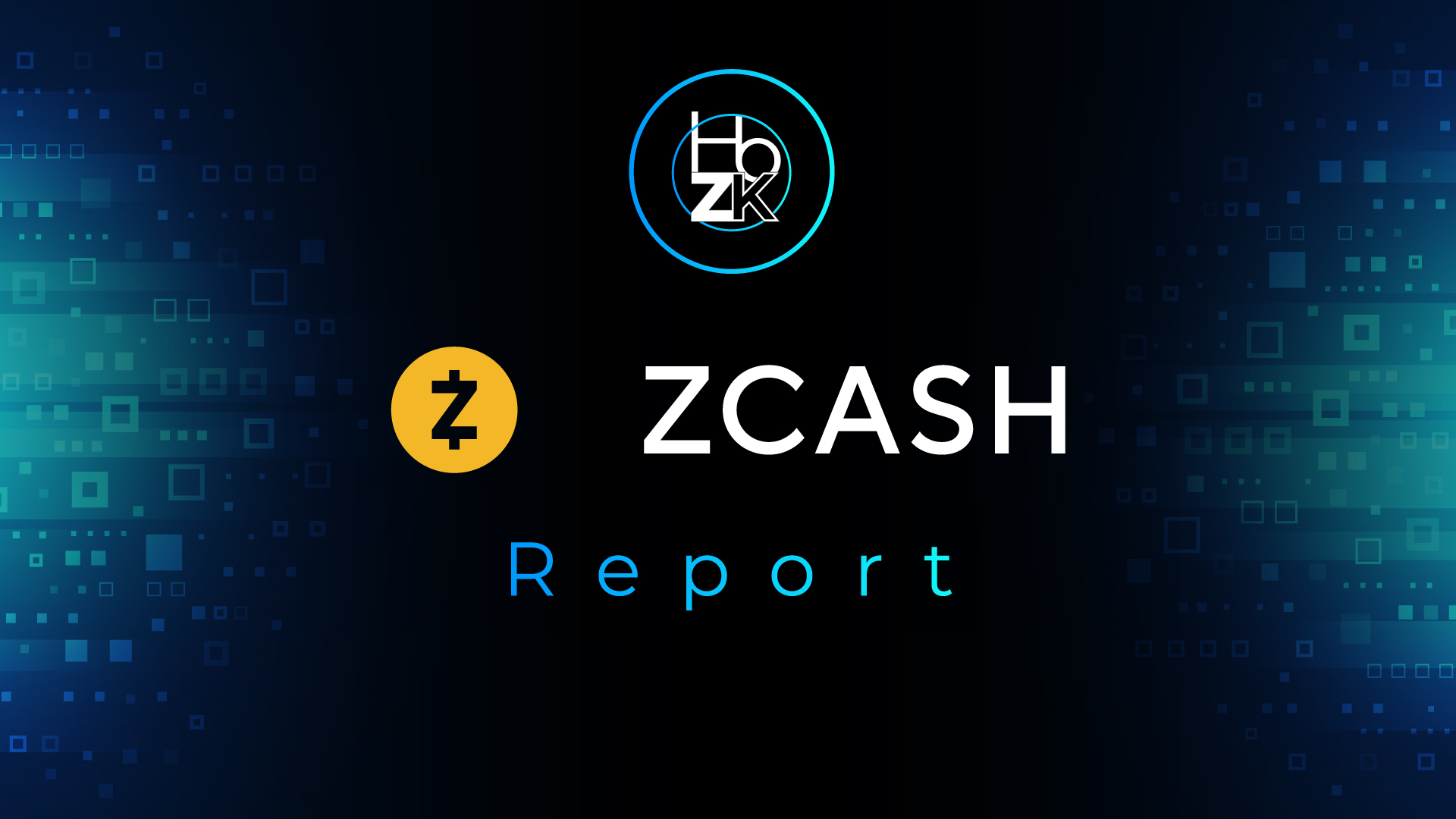
@Zcash is being integrated into @TemplarProtocol, a decentralized lending platform on @NEARProtocol: https://x.com/Zcash/status/1953896767172571341
This will allow ZEC holders to borrow stablecoins by using shielded ZEC as collateral, without KYC or centralized intermediaries. Privacy is maintained via smart contracts and multi-party computation.
Zcash Foundation
Tech
@ZcashFoundation has announced the release of Zebra 2.5.0, highlighting the activation of network upgrade NU6.1 on the Zcash Testnet: https://zfnd.org/zebra-2-5-0-release/
The update introduces the lockbox disbursement system and includes a breaking RPC change that renames the “deferred” value pool to “lockbox.” It also improves the release process by giving each crate its own changelog and independent versioning, helping developers manage API-breaking changes more effectively.
The project has also released FROST v2.2.0, focusing on improved security: https://zfnd.org/frost-2-2-0-release/
This update adds validation for the min_signers parameter during key refresh to prevent possible misuse that could weaken participant shares. The Minimum Supported Rust Version is now 1.81. New features include DKG refresh functions, expanded customization via post_generate, and better documentation. No breaking changes were introduced.
Shielded Aid Initiative
The project has also launched the Shielded Aid Initiative to integrate its privacy-preserving technology into humanitarian aid programs: https://zfnd.org/zcash-foundation-launches-new-initiative-to-champion-privacy-preserving-humanitarian-aid/
Unlike transparent blockchains that can expose sensitive recipient data, Zcash uses ZKPs to protect identities. The initiative aims to support NGOs in designing safer digital aid systems, ensuring compliance, sustainability, and protection for vulnerable communities.
Zcash continues to urge leaders to prioritize privacy in blockchain-based humanitarian work.
Tech
@zashi_app has released v2.1, expanding its integration with the @torproject network to enhance user privacy: https://electriccoin.co/blog/zashi-2-1-enhanced-privacy-with-tor-beta/
Previously limited to exchange rate queries, the built-in Tor client now supports transaction submission, third-party API connections, and data fetching. Built on the Rust-based Arti implementation, the update helps obscure IP addresses and reduce metadata leaks. The feature is in beta, with controls available in advanced settings.
Zashi has also launched a private, decentralized off-ramp for shielded ZEC through its integration with NEAR: https://x.com/zashi_app/status/1961060025964667311
Users can now swap shielded ZEC to any NEAR-supported cryptocurrency while keeping their address and transaction history private. This feature aims to offer a secure alternative to centralized exchanges, particularly where privacy is essential or centralized services are inaccessible.
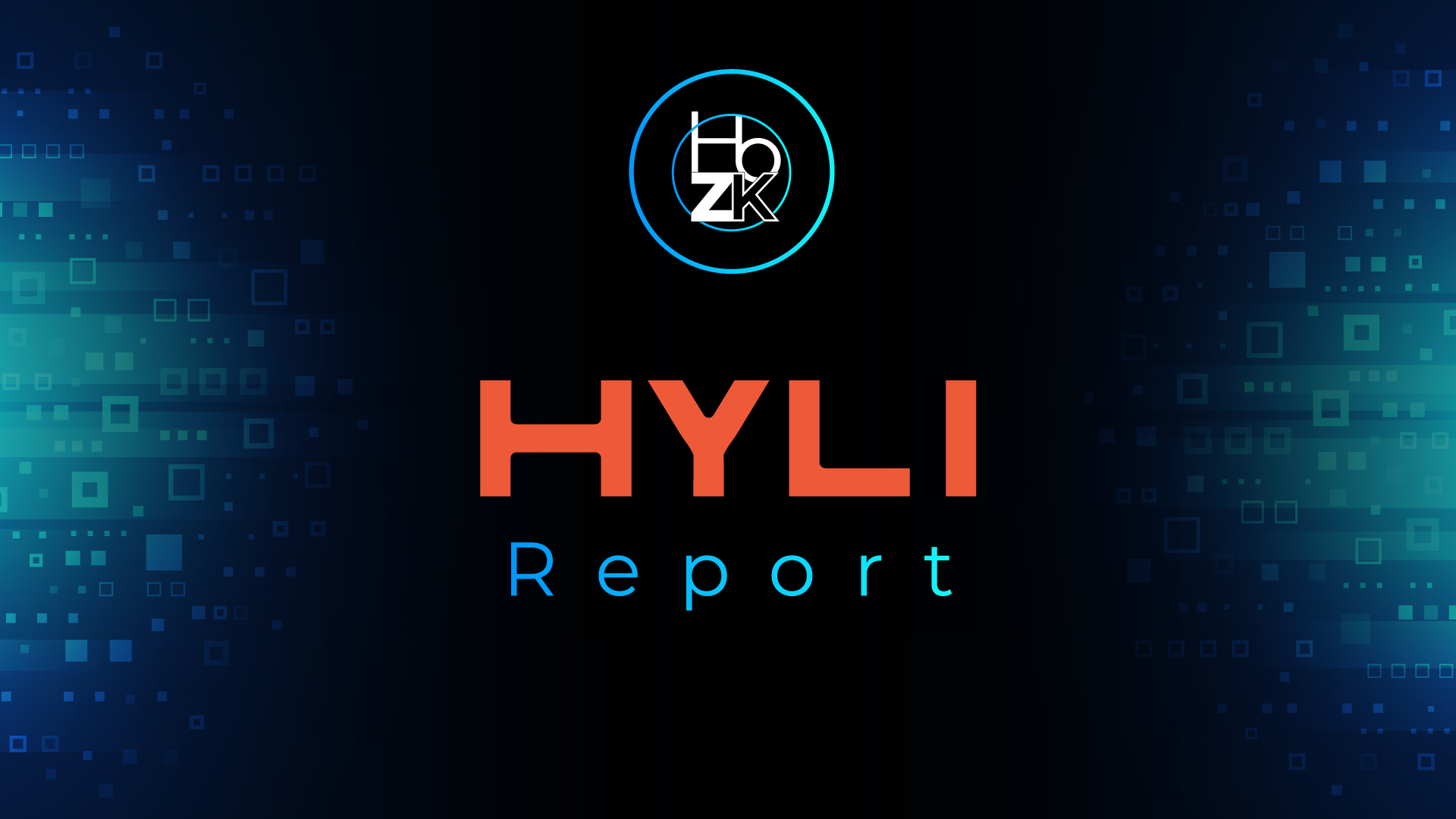
Publications
Hyli shared a detailed article explaining the motivations behind its design, how the system works, and what future it aims to enable: https://blog.hyli.org/introducing-the-hyli-guide/
The post outlines challenges in current L1 architectures and introduces Hyli’s approach to scaling via ZKPs, off-chain computation, and horizontal scalability. It also covers Hyli’s transaction model, Autobahn consensus, and how applications can be built to be verifiable, fast, and censorship-resistant.
Partnerships
@hyli_org is partnering with @Valyrxyz to expand support for verifiable applications through seamless proof settlement: https://x.com/hyli_org/status/1953444897123602812
The integration enables vApp proofs to finalize via the Hyli SDK, featuring automatic transaction generation and one-click deployment on Hyli’s testnet with instant explorer access.
With SP1(@SuccinctLabs) -enabled vApps supported, the collaboration aims to simplify development while boosting scalability and performance across the ecosystem.
Media
During @aztecnetwork's Noircon 2, @sylvechv, Co-founder of Hyli, joined @alicelingl from @HouseofZK, where they discussed building a blockchain stack from scratch tailored for ZKPs: https://x.com/HouseofZK/status/1950574740579512664
They explored Hyli’s approach to verifiable applications beyond smart contracts, its real-time @ethereum interoperability, and key insights from their recent testnet launch.
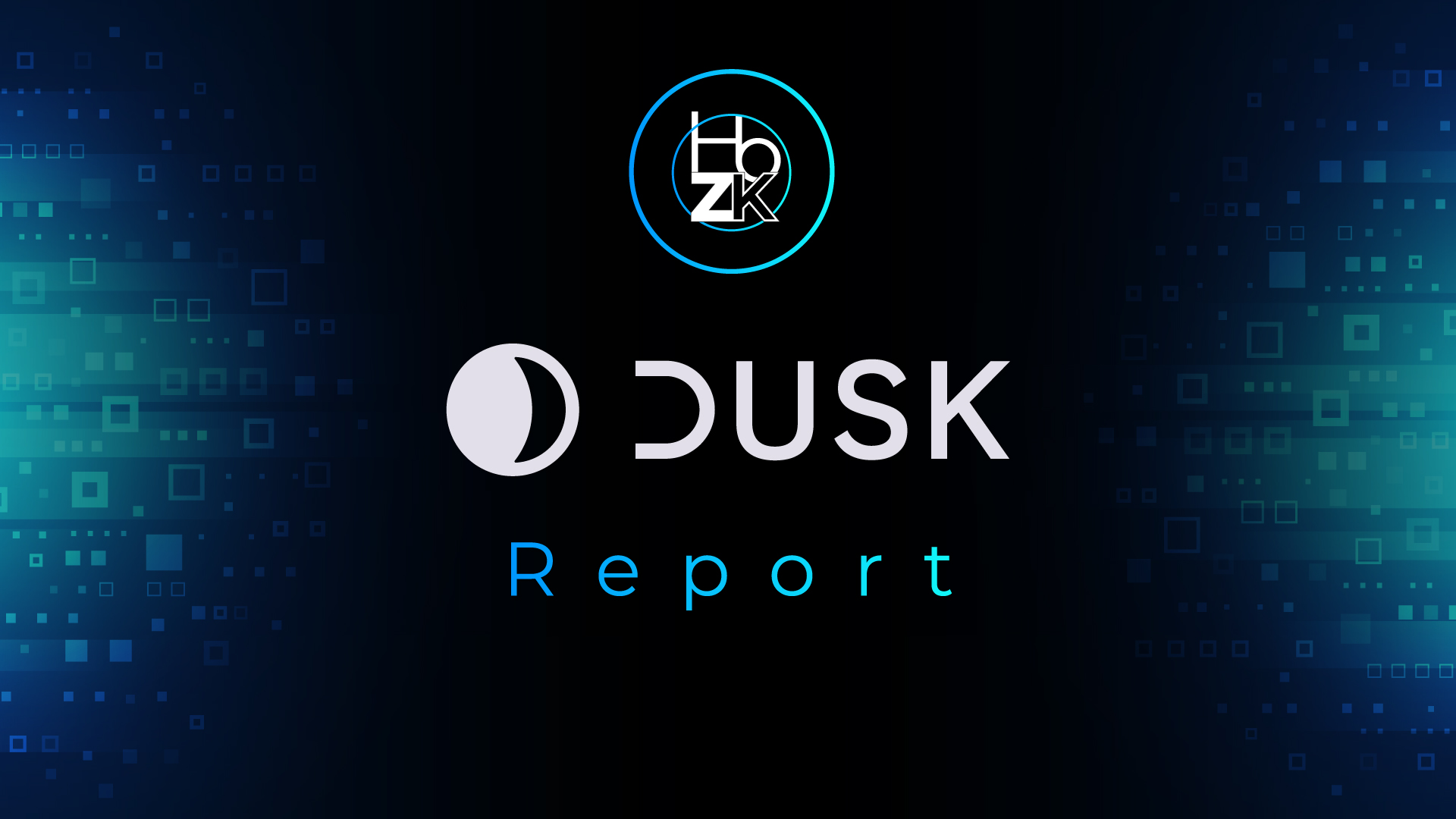
@DuskFoundation shared their latest development update: https://forum.dusk.network/t/progress-update-road-to-modular-architecture/115/1
Some key highlights:
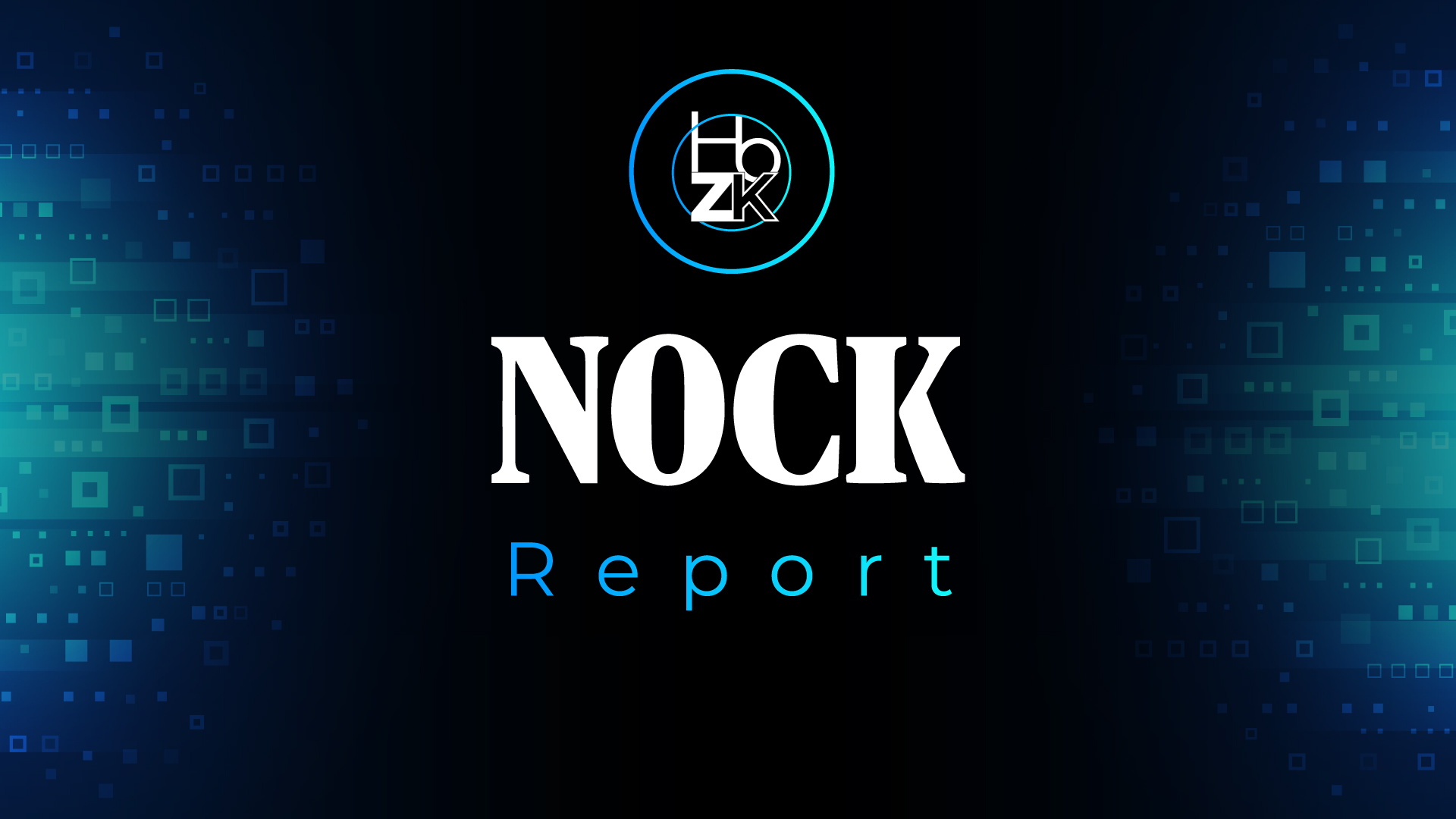
Tech
@nockchain announced plans for its first protocol upgrade, introducing programmability features aimed at efficiency, privacy, and scalability: https://nockchain.org/the-road-to-programmability/
Changes include a shift to P2PKH address format, SegWit integration, and enhanced lock script functionality. Miners and node operators will need to update clients once details are released.
The ecosystem also gained momentum with a @coingecko listing, growing community activity, and a node client update improving sync speed and developer tools.
Publications
Nockchain shared an article explaining how its approach to “Strategic Bundling” addresses the fragmentation caused by modular blockchain designs: https://nockchain.org/how-nockchain-rebundles-modular-complexity/
By uniting settlement, sequencing, and data availability into one onchain market while moving execution offchain, Nockchain aims to simplify user and developer experience.